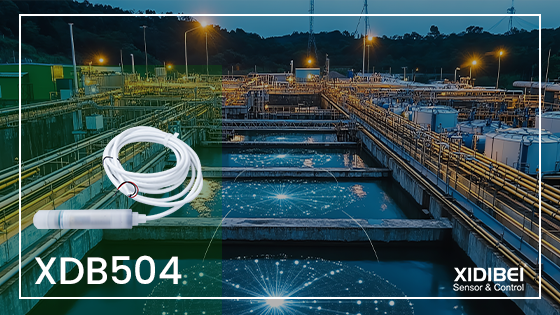Have you ever wondered how the clear water that flows from your faucet gets there? It’s not just about the water passing through pipes—it relies on a sophisticated management system working behind the scenes. Nowadays, smart water management, supported by sensor technology, makes this system more intelligent and reliable than ever. In a bustling city that consumes vast amounts of water daily, such smart management becomes crucial.
From Traditional to Smart: The Rise of Smart Water Management
Imagine how, in the past, water management was like a farmer manually adjusting irrigation, relying solely on experience. In contrast, modern smart water systems are equipped with sensors that act like ‘all-seeing eyes,’ allowing us to monitor and control water resources in real time. This prevents waste and ensures water quality remains safe. For instance, water quality sensors in rivers act like ‘guards,’ constantly protecting the purity of the water and preventing pollution from spreading.
The Core Role of Sensors in Smart Water Management
The ‘smartness’ of smart water systems is largely enabled by the multi-level use of sensors.
1. Water Quality Monitoring Sensors
Much like air purifiers at home that monitor air quality, water quality sensors keep track of essential water parameters. For example, when the pH or dissolved oxygen levels in a city’s water supply deviate from the norm, the sensor acts as an ‘alarm,’ quickly alerting managers to prevent further contamination.
2. Flow and Pressure Sensors
If you’ve ever noticed the water pressure at home suddenly weakening or strengthening, the issue might stem from the pipes. Flow and pressure sensors in smart water systems act like ‘valves,’ ensuring each drop of water flows precisely where it’s needed, preventing overpressure that could lead to pipe bursts or low pressure that causes water shortages.
3. Leak Detection Sensors
Think of an aging water pipeline network like a leaky faucet in your home. Leak detection sensors can precisely identify problems, much like a ‘plumber,’ quickly finding the issue and reducing water waste and financial losses.
4. Level Sensors
In reservoirs and water tanks, level sensors act as ‘water gauges,’ constantly monitoring water levels. For example, if the reservoir’s water level becomes too high, the sensor will notify managers to make adjustments, preventing floods or mismanagement of water resources. XIDIBEI’s XDB504 series level sensors, with excellent corrosion resistance and high precision, are especially suited for detecting and controlling liquid levels in various corrosive industrial environments.
The Advantages of Smart Water Systems
The widespread use of sensors brings numerous unique advantages to smart water management.
Real-Time Data Acquisition
Much like your smart electric meter providing real-time data on energy usage, smart water systems use sensor technology to provide real-time information on water management. For example, if water quality or pressure changes in a specific area, managers can quickly receive the data and take appropriate action.
Precise Scheduling and Control
Just like an automated irrigation system knows when to turn on or off, smart water systems use sensor data to precisely control water distribution. This not only prevents water waste but also reduces human errors in water management.
Cost Reduction
You’ve probably noticed how smart technology reduces the need for manual maintenance at home. Similarly, smart water systems rely on sensors to monitor water conditions in real time, reducing the need for human intervention and significantly lowering operational costs.
Future Directions
As the Internet of Things (IoT) and artificial intelligence (AI) technologies continue to evolve, the use of sensors in smart water systems will only expand. Imagine cities of the future, where sensors not only monitor water resources in real time but also use AI to predict water demand and optimize distribution in advance. Additionally, as sensor technology improves, they will become more precise and durable, performing effectively even in more complex and harsh water management environments.
Post time: Oct-09-2024



